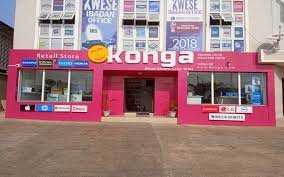African e-commerce giant Jiji is expanding outside the continent, setting its sights on Bangladesh. Attracted by the country’s growing middle class and increasing mobile connectivity, the company aims to tap into the high-growth potential of emerging markets beyond Africa.
Payments and Commerce Market Intelligence (PCMI) estimates that Bangladesh’s e-commerce industry will expand to $13 billion by 2027, making it a desirable location for Jiji’s next stage of expansion.
Bangladesh is a strategic potential for Jiji, which operates in seven African countries: Ethiopia, Ghana, Kenya, Nigeria, Tanzania, Uganda, and Senegal. The South Asian nation has a favorable environment for growth, with 131 million internet users and a growing desire for online commerce. Jiji intends to leverage Bangladesh’s e-commerce ecosystem to increase its user base.
“With a solid financial foundation and a scalable business model, we have grown into a profitable leader in Africa’s e-commerce space,” a Jiji spokesperson told TechCabal. “Our experience navigating fast-growing markets in Africa positions us well to succeed in Bangladesh, where we aim to help drive e-commerce growth.”
Bangladesh’s digital economy is flourishing, supported by government policies introduced to fuel e-commerce adoption. The Information and Communication Technology (ICT) Act of 2006 laid the legal groundwork for online transactions and cybersecurity, while national ICT policies promote digital commerce.
These initiatives, coupled with a growing middle class, have accelerated online shopping. A 2024 PCMI survey found that 79% of Bangladeshi consumers had made online purchases, and 47% were comfortable using digital payment platforms.
Jiji’s entry into this competitive market will put it up against established players such as Daraz, Bikroy, and Ajkerdeal. To succeed, Jiji has to differentiate itself with localized offerings and strategic partnerships.
Founded in 2014, Jiji gained a foothold in Nigeria’s competitive e-commerce sector by offering free listings for first-time users and preloading its app onto budget-friendly smartphones through partnerships with phone manufacturers. A 2016 deal with Airtel also provided users with data-free access to the platform.
In 2019, the company raised $21 million and acquired OLX Africa, taking over operations in Nigeria, Kenya, Ghana, Uganda, and Tanzania. This helped Jiji expand its reach to 300 million people across five countries. In 2021, it acquired Cars45, a marketplace for buying, selling, and trading used cars in Nigeria, Kenya, and Ghana. A year later, Jiji strengthened its position in Ghana by acquiring its main competitor, Tonaton.
Now, the company is betting that its proven playbook in Africa can be replicated in Bangladesh. If successful, this expansion could be the beginning of Jiji’s broader push into Asia’s fast-growing digital markets.







No Comments